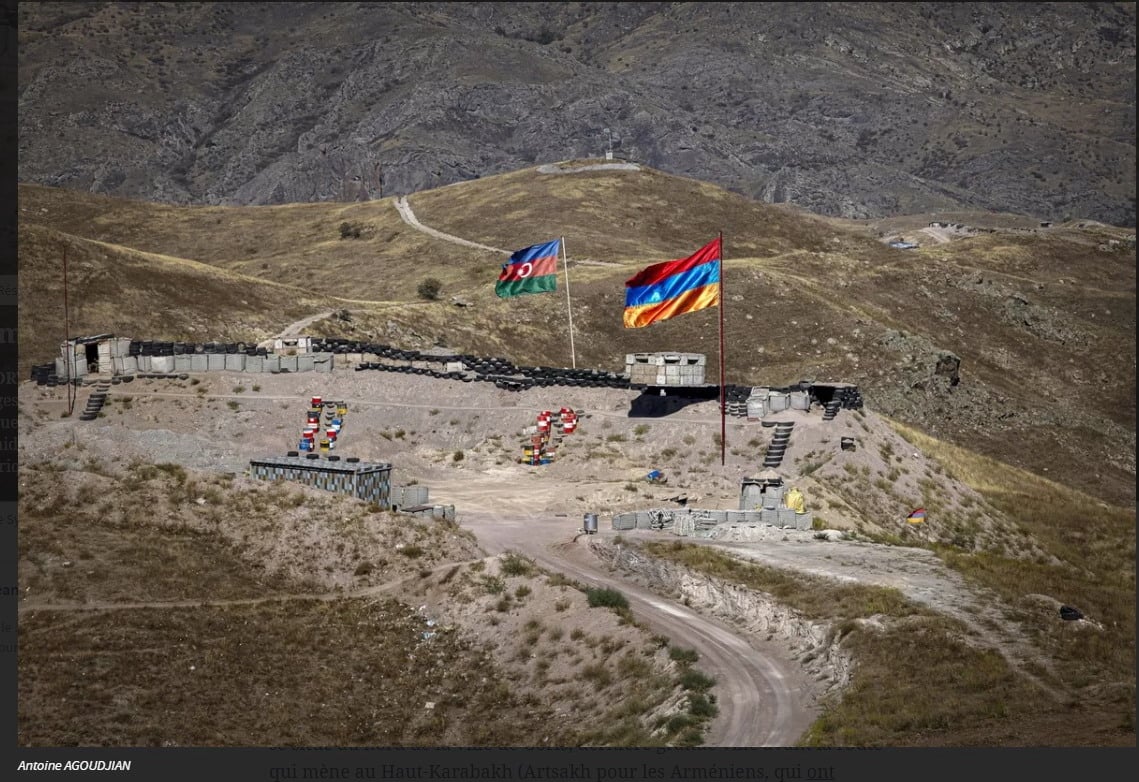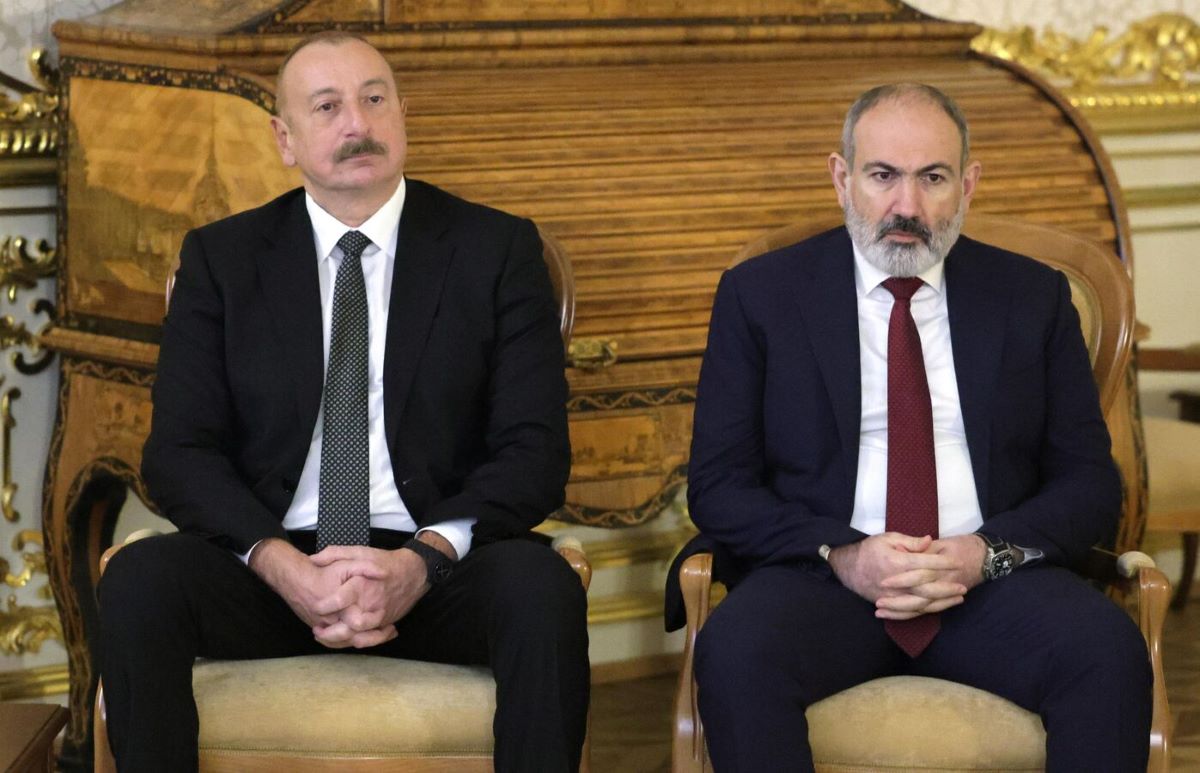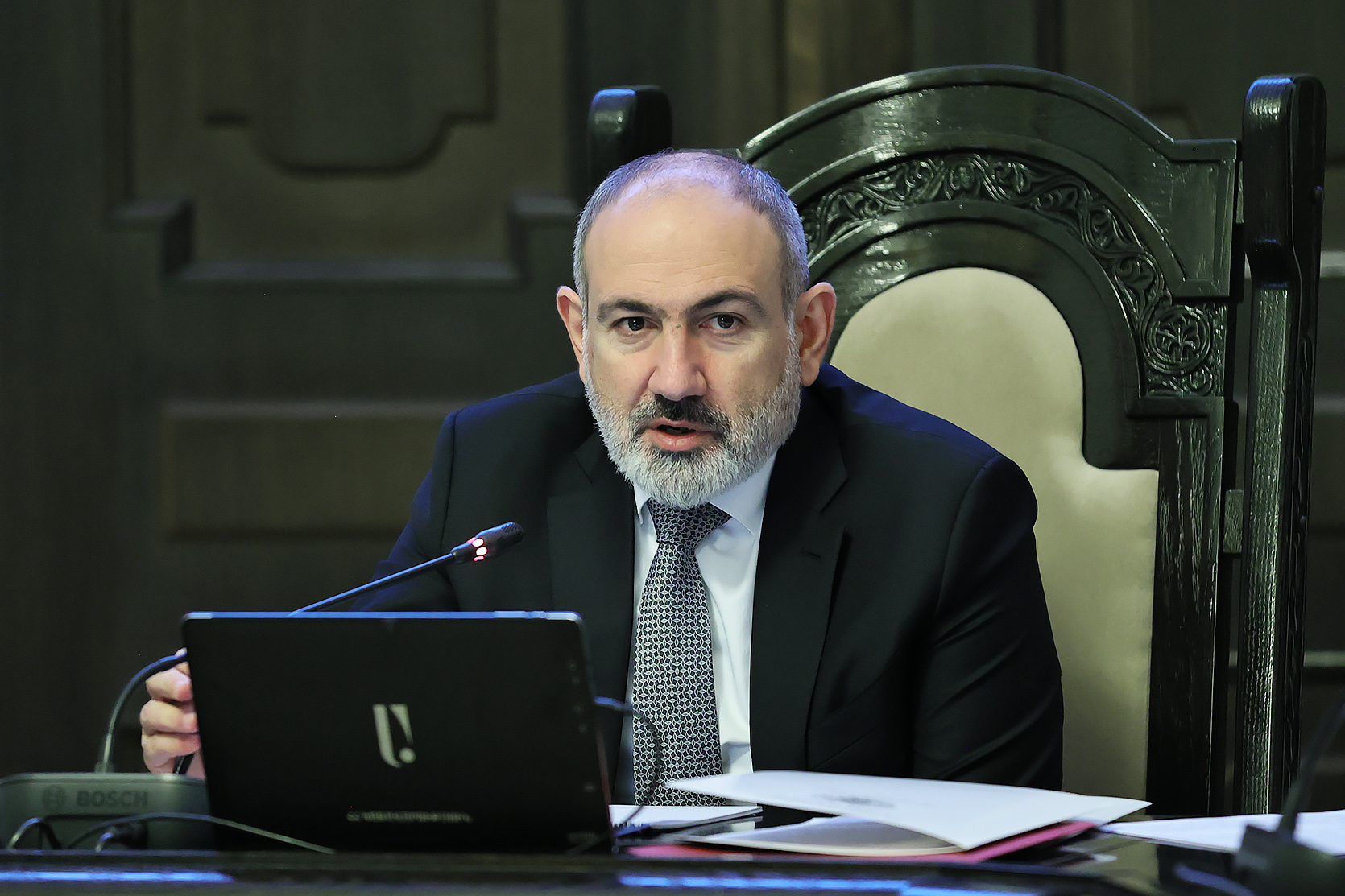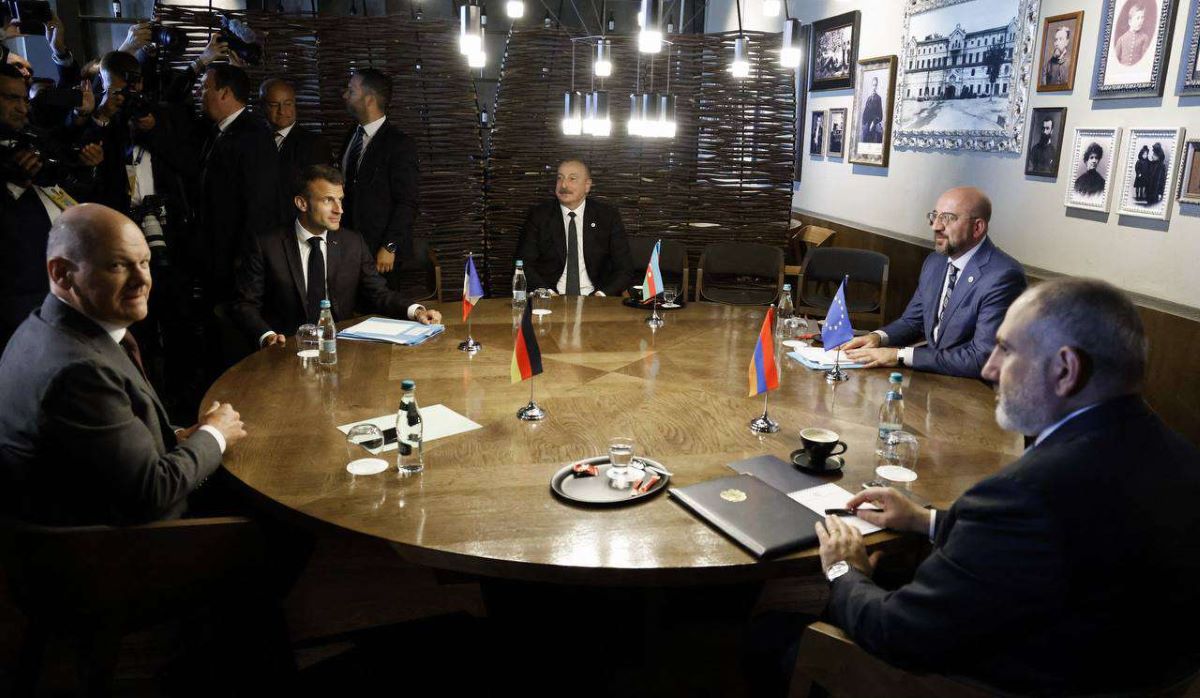"Baku is laying the groundwork for another aggression against Armenia" – Armenian political analyst
Baku demands return of four villages
The office of the Azerbaijani deputy prime minister declared that “the four Azerbaijani villages currently under Armenian control are rightfully Azerbaijan’s and should be immediately freed.” These villages are near a crucial road that links Armenia with Georgia and a pipeline that provides gas to the country. Armenian experts interpret this statement as Azerbaijan’s intention to take control of these areas, potentially disrupting the road and gas supply.
Official Yerevan has not responded to this statement. Even before Baku’s demands were reported in the media, the office of deputy prime minister Mger Grigoryan released information: “Azerbaijan is asking for four villages but won’t admit that it currently occupies territories of 31 Armenian settlements.”
Political analyst Gurgen Simonyan believes Baku is actively trying to disrupt the peace process. He states that the villages mentioned by Azerbaijan are undeniably Armenian territories, not areas of dispute.
Simonyan argues, “Baku is merely laying the groundwork for its next act of aggression against Armenia, an aggression that Russia provokes and Azerbaijan eagerly supports.”
- “Ultimatum to Aliyev”: Opinions from Yerevan on the European Parliament’s report
- Opinion: “If Baku doesn’t return to Western format, it may lose a lot”
- Opinion: “The only viable option for Armenia is to coexist with Turkey and Azerbaijan”
“Return the four villages immediately”
Recently, commenting on the outcomes of the commission meetings on the Armenian-Azerbaijani border delimitation, the office of Azerbaijani deputy prime minister Shahin Mustafayev announced:
“As for the four non-exclave Azerbaijani villages (Baghanis Ayrim, Ashagy Askipara, Kheyrimli, and Gizilgadzhyly) occupied by Armenia, they should be immediately freed.”
The Azerbaijani side emphasizes that as part of the delimitation process, “the issue of freeing the four exclave Azerbaijani villages occupied by Armenia will be resolved.”
Baku lists the following settlements: Yukhary Askipara (Armenian name: Verin Voskepar), Sofulu, Barkhudarly in Armenia’s Tavush region, and Karki (Armenian name: Tigranashen) in the Ararat region.
Armenia also has an enclave in Azerbaijan — the village of Artsvashen, occupied since the 1990s. Prime minister Nikol Pashinyan periodically states that the issue of enclaves/exclaves is discussed during peace negotiations, but there is no solution yet.
Meanwhile, Azerbaijan declares “the information that the lands belonging to 31 Armenian villages are supposedly ‘occupied’ by Azerbaijan as unreliable.”
“Azerbaijan refuses to leave Armenian territories”
The office of Armenian deputy prime minister Mger Grigoryan reported disagreements between the sides before the Azerbaijanis, right after the meeting of the delimitation commissions. The Armenian side emphasized that Baku is demanding four villages without any intention of withdrawing its troops from Armenian territories:
“Azerbaijan lists the following toponyms: Baganis Ayrum, Ashagy Askipara (Nerkin Voskepar), Kheyrimli, Gizilgajily, while simultaneously refusing to acknowledge that the vital territories of 31 non-enclave Armenian settlements are under Azerbaijani occupation.”
- The list of these Armenian non-enclave settlements was also presented:
- Berkaber, Sarigyugh, Sevkar, Vazashen, Paravakar, Movses, Artsvaberd, Chinari, Aygedzor — in the Tavush region,
- Kajaran, Salvart, Gorayk, Sarnakunk, Angeghakot, Agitu, Noravan, Vaghatin, Verishen, Khoznavar, Teh, Nerkin Hand — in the Syunik region,
- Paruyr Sevak — in the Ararat region,
- Sotk, Kut, Norabak, Nerkin Shorzha, Verin Shorzha, Akunk, Kakhakn, Kutakan — in the Gegharkunik region,
- Jermuk — in the Vayots Dzor region.
The Armenian authorities claim that the Azerbaijani armed forces have occupied 200 square kilometers. They emphasize that some of it came under Azerbaijani control during the first Karabakh war and some as a result of the incursion in 2021-2022.
The meeting of the commissions for the delimitation of the Armenian and Azerbaijani border took place on March 7 at the border between the two countries. Meanwhile, Baku has been referring to the border between Armenia and Azerbaijan as “conditional” lately.
According to the Armenian Foreign Ministry, the heads of the commissions, Mger Grigoryan and Shahin Mustafayev, “exchanged views on the issues of border delimitation and began to coordinate the draft Regulation on the joint activity of the commissions.” The sides agreed:
- to finalize the coordination of the draft Regulation on the joint activity of the commissions as soon as possible,
- to determine the date and place of the next meeting of the commissions.
Neither Yerevan nor Baku reported any significant results of the meeting.
The Alma-Ata declaration — a “bone of contention”?
The Armenian side insists that the delimitation process should be based not only on technical grounds—maps—but also on political grounds—the Alma-Ata Declaration. According to this document, the administrative borders of the USSR were recognized as the international borders of the countries after the collapse of the Union.
In an interview with the Turkish channel TRT, the Armenian foreign minister stated that Azerbaijan is removing the reference to the Alma-Ata Declaration from the draft peace treaty. Meanwhile, Armenia intends to carry out the delimitation of borders specifically based on it.
Ararat Mirzoyan expressed concerns raised by Armenian diplomats:
“There are suspicions that following the crimes that occurred in our region, after the forceful deportation of Armenians from their homeland — from Nagorno-Karabakh, Azerbaijan might have further plans. It may continue its encroachments on the sovereign territory of the Republic of Armenia.”
Comment
Political analyst Gurgen Simonyan reminds us, “Azerbaijan has invaded the sovereign territory of Armenia, does not recognize the Alma-Ata Declaration, or the maps of the USSR from different years.” In his opinion, discussions about the “immediate return of four villages prove that Baku continues its aggressive policy.”
“The new demands from the Azerbaijani side are baseless. They declare these villages Azerbaijani to ensure that after using military force, no country in the world could say anything. It was the same in Artsakh when Armenians faced aggression, but the world couldn’t act. It’s not just about four or eight villages,” he emphasizes.
Simonyan does not rule out that Azerbaijan may attempt to forcefully seize the mentioned four villages. According to him, Baku’s goal is a local military escalation with the potential to grow into large-scale military operations.
According to him, the Armenian Foreign Ministry should respond promptly to Azerbaijan’s actions:
“They need to tell the Azerbaijanis that their expectations do not match the current situation. They should say: first reduce the tension, withdraw your troops to their original positions, leave the sovereign territory of the Republic of Armenia, and then we’ll consider what’s ours and what’s yours.”
According to him, Yerevan should try to disrupt Azerbaijan’s long-term plans at the diplomatic level. Gurgen Simonyan suggests that Armenia should start the process of withdrawing from Russian integration structures (the CSTO military bloc and the EAEU economic union), and ratify the association agreement with the European Union.
The political analyst advises the Armenian authorities to label Baku’s objectives as “Russia’s plan,” which will mobilize “the entire civilized world to support Armenia.”
Additionally, according to the analyst, Yerevan should:
- “sign a strategic mutual assistance agreement with France,
- bring in the necessary military equipment to the country as soon as possible,
- localize soldiers of the Russian military base and border guards who are enemies within – in one location on Armenian territory.”
Gurgen Simonyan believes that only by conducting a steadfast policy of “increasing Armenia’s resilience,” can Azerbaijan be restrained. Therefore, he insists on the necessity to show the world that Moscow, pushing and supporting Baku, does not have a presence in Armenia and that Yerevan is capable of conducting its affairs without Russian influence.






















